Mississippi Today
Brett Favre says the welfare agency didn’t help satisfy his volleyball pledge, but Aaron Rodgers, Jimmy Buffett and others did

Brett Favre says the welfare agency didn’t help satisfy his volleyball pledge, but Aaron Rodgers, Jimmy Buffett and others did
NFL legend Brett Favre says Mississippi’s welfare department didn’t help satisfy his pledge to fund a new volleyball stadium at University of Southern Mississippi.
But current Green Bay Packers quarterback Aaron Rodgers, a charity started by Margaritaville-songwriter Jimmy Buffett, and former Gov. Phil Bryant’s political action committee did.
Favre has made national news in recent years for tapping his home state’s welfare agency to raise funds for the stadium, but an email Mississippi Today recently obtained shows he also raised at least $180,000 for the facility from at least four charities. These are organizations that claim to increase economic, educational or workforce opportunities for families in need.
One of the key allegations against Favre in Mississippi’s welfare scandal is that he personally benefited from a scheme to divert federal funds intended to help poor Mississippians to build a volleyball stadium at his alma mater.
Mississippi Department of Human Services, which is suing Favre and dozens of others to recoup the misspent funds, draws this conclusion because, they allege, Favre personally committed funds to the project, so any welfare money used to offset that obligation was a financial benefit to Favre.
The athlete, who also directly received $1.1 million in welfare funds, did personally agree to fundraise or donate just over $1.4 million, according to a never-before-published donor agreement introduced in court this month. The document was signed by Favre, his wife, and University of Southern Mississippi Athletic Foundation President Leigh Breal.
But this guarantee came months after Mississippi Department of Human Services and one of the agency’s subgrantees, nonprofit Mississippi Community Education Center, had already crafted a lease agreement allowing them to funnel $5 million in federal welfare funds to the project.
In Favre’s latest reply to MDHS in early April, his attorneys accuse MDHS of using legal fallacies in its civil charges against Favre.
“MDHS’s theory would effectively place no limits on UFTA (Uniform Voidable Transactions Act) liability—anyone could be sued who could in any way be deemed to have reaped some undefined benefit from a transfer,” Favre’s latest motion reads. “That of course is not the law in Mississippi or anywhere else.”
Since Mississippi Today first uncovered in February of 2020 that officials used welfare money to build the volleyball stadium, the entities involved have not made public a full accounting of who paid for the roughly $8 million facility, which would show who contributed to the project following Favre’s commitment so he didn’t personally have to.
An email recently obtained by Mississippi Today reveals publicly for the first time that, at least by the time initial arrests were made, the following individuals had made contributions towards Favre’s pledge:
- American Family Insurance Dreams Foundation Inc. (6/22/18): $100,000
- Imagine Mississippi Political Action Committee (6/4/18): $2,500
- Anonymous Donor (7/30/18): $150,000
- SFC Charitable Foundation (7/10/18): $33,378
- Brett Favre (8/16/18): $50,000
- Steel Dynamics Foundation (7/9/19): $25,000
- Aaron Rodgers (10/10/19): $10,000
- Howard Deneroff (1/7/20): $500
- Jimmy A. Payne Foundation (1/13/20): $22,000
- Matt Helms (1/24/20): $360,000
Favre attached this email to his most recent court filing, but redacted the donors’ names. Mississippi Today retrieved an unredacted copy, which University of Southern Mississippi should have produced to the news organization in response to a public records request last year, but did not.
The list does not implicate Rodgers, Buffett, or any other private donor in the welfare scheme. But the email serves as a key piece of evidence in Favre’s defense.
The gifts cited total just over $650,000. Documents reflecting the total amount Favre personally contributed towards the project have not been made public, but his lawyer Eric Herschmann told conservative sports podcaster Jason Whitlock in a February interview that Favre donated over a million dollars of his own money to the facility. Also, The Athletic first reported that from 2018 to 2020, the same years Favre had an obligation to fund the volleyball construction, his charity Favre 4 Hope donated nearly $133,000 to USM Athletic Foundation.
In addition to the $5 million in welfare funds that went towards the facility, Nancy New, founder of the nonprofit in charge of spending welfare funds, alleged that former Gov. Bryant directed her to make $1.1 million in payments to Favre to help Favre raise funds for the stadium — an allegation Bryant has denied to the press.
But a spokesperson for the athlete recently confirmed that Favre did not use that money on the facility.
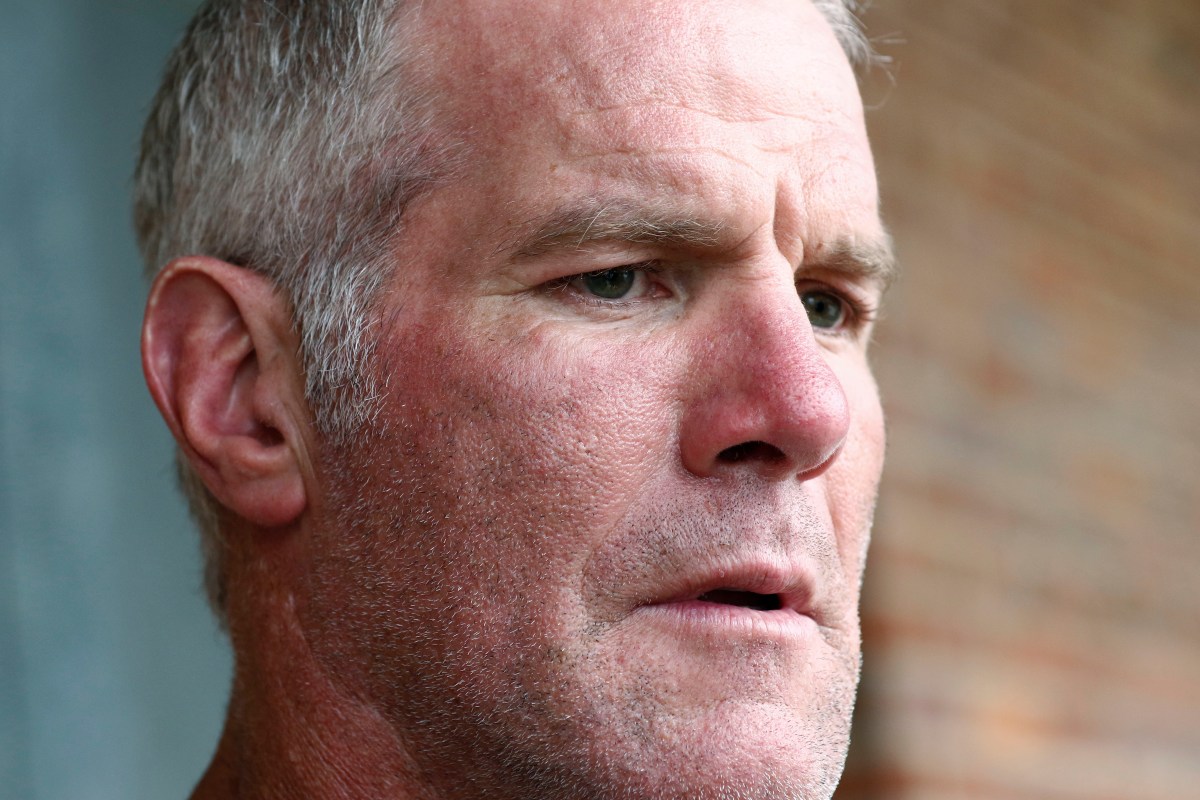
“Brett fulfilled his only obligation to USM. No funds he received from MCEC went towards the wellness center. Brett both solicited donations and often asked individuals or groups to send money to USM instead of paying him for services he provided,” a spokesperson for Favre said in a statement last week.
While a complete and reliable breakdown of the funds used to construct the facility has not been made public, outside counsel for the athletic foundation recently confirmed in an email requested by Favre’s wife Deanna Favre that the Favres “satisfied the obligations of their Donor Agreement by raising or paying the Foundation in excess of the pledged amount of at least $1,406,747.55 for the Volleyball Wellness Center.”
“This includes cash donations given directly by Brett and Deanna Favre and other amounts contributed at the request of Brett and Deanna Favre,” Ridgeland-based attorney Scott Jones wrote in the Mar. 23, 2023 email to Favre’s attorneys.
University of Southern Mississippi has refused to answer several questions from Mississippi Today about the volleyball project, citing litigation.
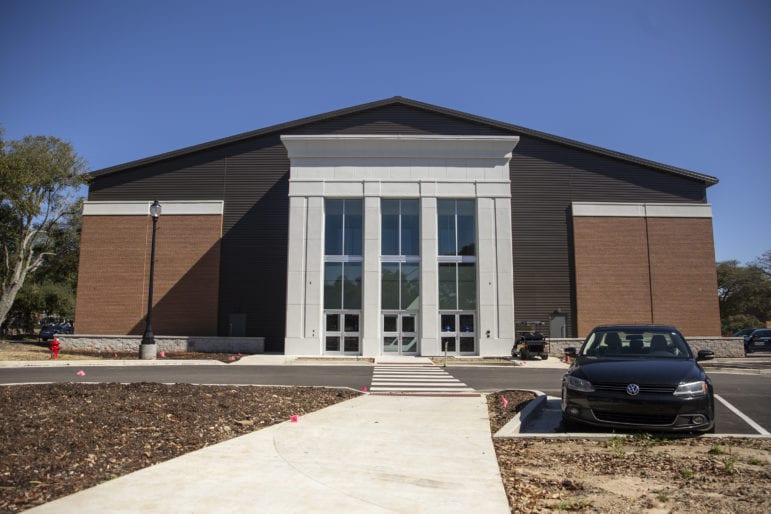
Favre began fundraising for the new volleyball stadium at USM, where his daughter played the sport, in 2017 – no one argues that. What’s in dispute, and belabored in lengthy court motions back and forth, is whether Favre promised to come up with the funding for construction at the outset of the project.
Favre argues in his motion to dismiss the civil suit against him that the $5 million paid in 2017 couldn’t have satisfied his $1.4 million guarantee in 2018 since the payment came before the pledge. MDHS alleges that Favre made a “handshake deal” near the inception in 2017, which is the only reason the university proceeded with the project, meaning he was on the hook for the funding the entire time.

By mid-2017, Favre had supposedly contributed $150,000 towards the volleyball project, according to an April 2017 email from Morrison to then-USM Athletic Director Jon Gilbert. After struggling to secure many more big donors, Gilbert involved nonprofit founder Nancy New, who had already entered at least one lease agreement with USM for the purpose of using grant money to make building renovations on campus – a purchase that has yet to be scrutinized.
“Brett and Deanna have agreed to help with fundraising for the facility,” Gilbert wrote in a July 16, 2017, email to New. “We currently have $1.2 million in hand from a variety of people that have committed to the project … I will find out what Brett’s schedule is Tuesday and coordinate a time he can stop by that works for everyone.”
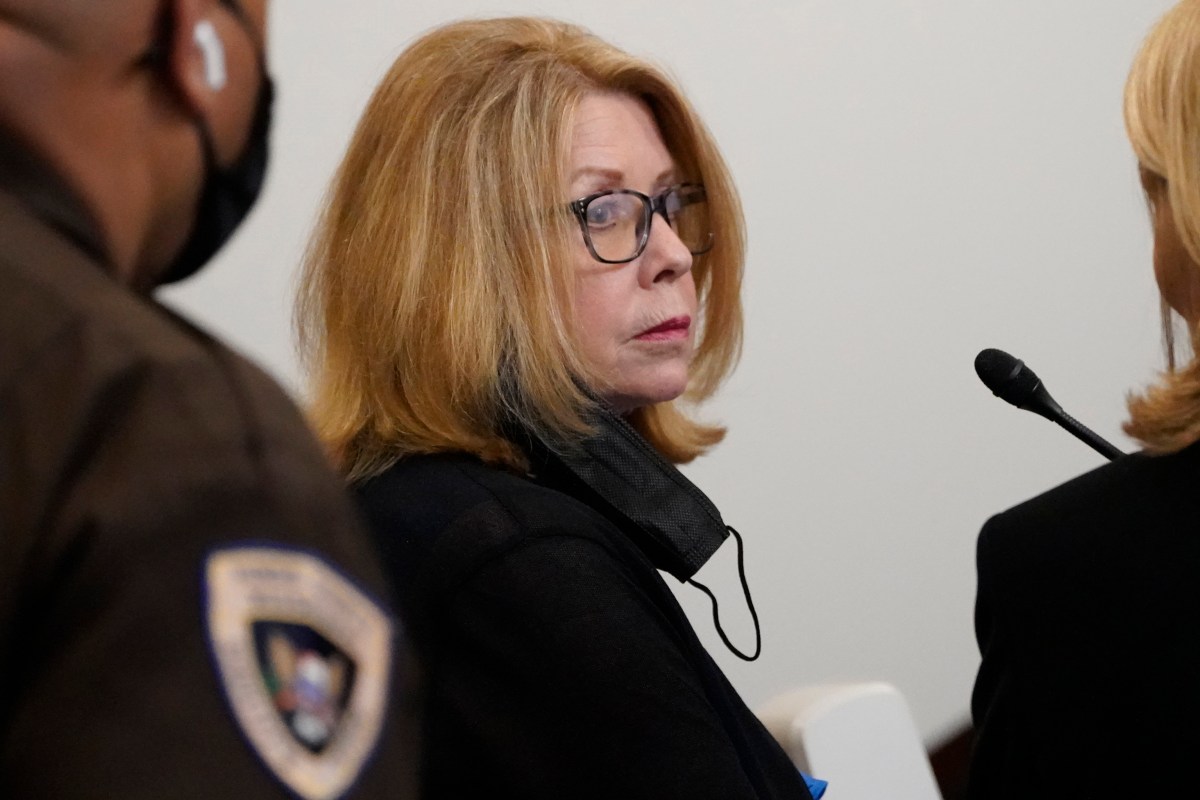
In the days and weeks following, Favre and New discussed by text the challenges in using federal grant funds for the volleyball stadium, since federal law prohibits spending of these dollars on brick-and-mortar construction projects. Favre suggested the nonprofit hire and pay him for marketing services – which are allowed under the federal rules – and that way he could pass the money to the athletic foundation.
“Will the public perception be that I became a spokesperson for various state funded shelters,schools,homes etc….. And was compensated with state money? Or can we keep this confidential,” Favre texted New in a never-before-published text first introduced into court last month.
New responded that only she, her son Zach New and former Mississippi Department of Human Services director John Davis would have information about the payment – a product of the secrecy shrouding the welfare program.
“So if we keep confidential where money came from as well as amount I think this is gonna work,” Favre wrote.
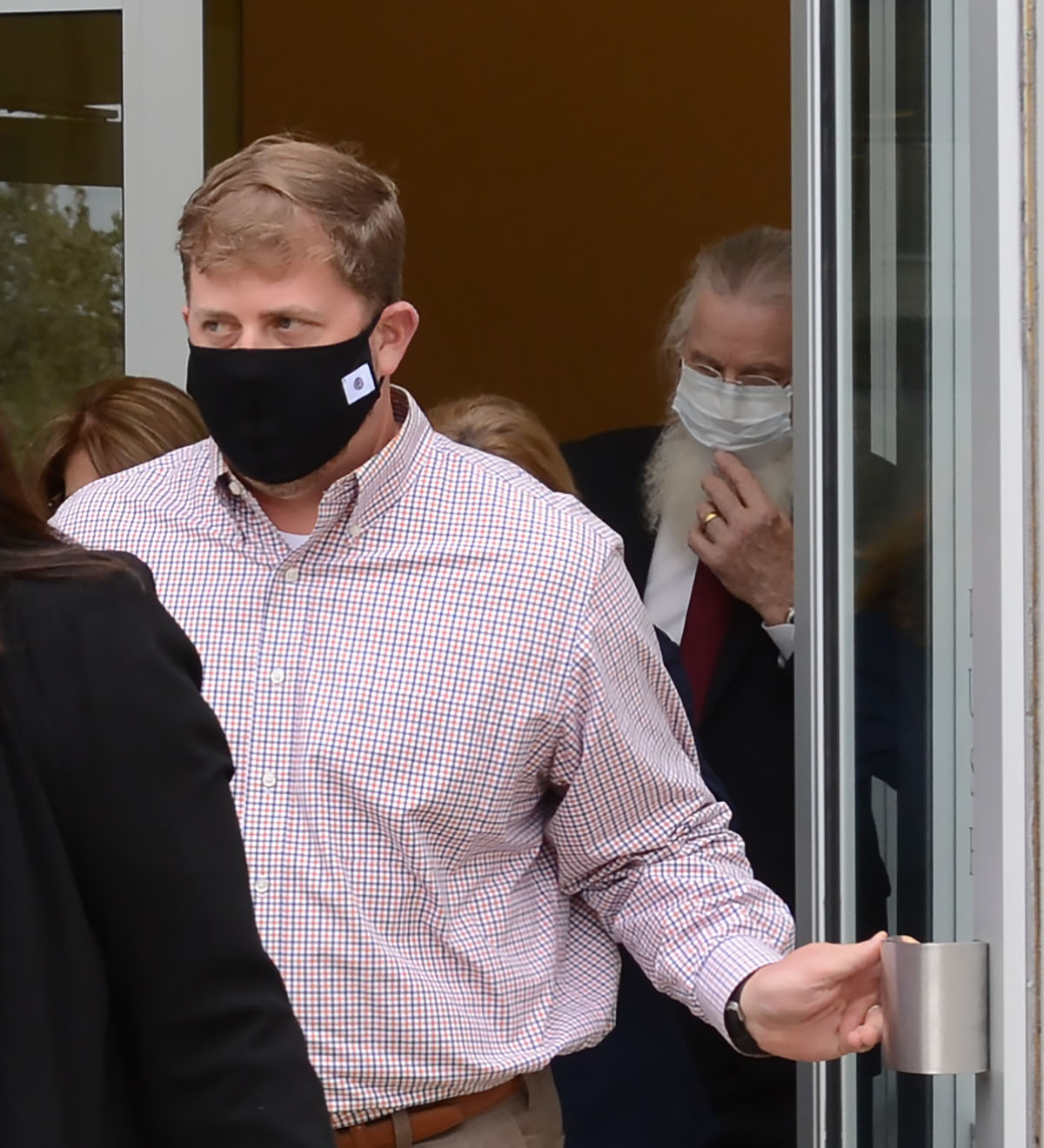
The nonprofit eventually made two $2.5 million payments through a lease agreement with USM Athletic Foundation in November and December of 2017. For this, Zach New pleaded guilty to state charges of defrauding the government. To make the lease appear legit, the nonprofit said it would occupy classrooms inside the stadium, where it would conduct programming for underprivileged people. Later that December, the nonprofit also made the first $500,000 payment directly to Favre under an agreement that he would cut a radio ad for their anti-poverty program.
In the following months, Favre learned that the construction bids had come in much higher than expected, and that USM Athletic Foundation wouldn’t be able to begin building the facility until they could guarantee more funding was coming.
In April of 2018, an email stated that Favre’s original gift of $500,000 towards the volleyball stadium would be reduced to $250,000 after he instructed the university to transfer half to the construction of a beach volleyball arena. (His daughter had moved from the indoor team to the beach team).
In order for work to begin, Favre signed the $1.4 million donor agreement, ensuring that he’d raise or cover the rest of the cost, on May 2, 2018.
About a week later on May 10, New texted Favre, “I am making some progress on our money needs. What amount out of the whole loan that you signed would be most helpful right now? John and I may have a plan!!”
This text appears to show that Favre and New had planned for the nonprofit to contribute towards his guarantee.
On May 17, New texted Favre, “Good news. I have a little money for the ‘project’ – $500,000! Do you want me to send to the Athletic Dept. Or to your foundation.”
New sent the payment in the following weeks to Favre’s for-profit company Favre Enterprises, Inc., according to the State Auditor’s Office.
The text suggests that they both understood the payment to Favre – paid under what was essentially a sponsorship agreement – was ultimately for the purpose of supporting construction at USM.
“While $1,100,000 was paid based on a contract for public appearances, and Favre did record a radio advertisement, the payment was intended, as requested by Bryant, to help Favre raise funds for construction of the Volleyball Facility,” reads New’s October filing in the civil case.
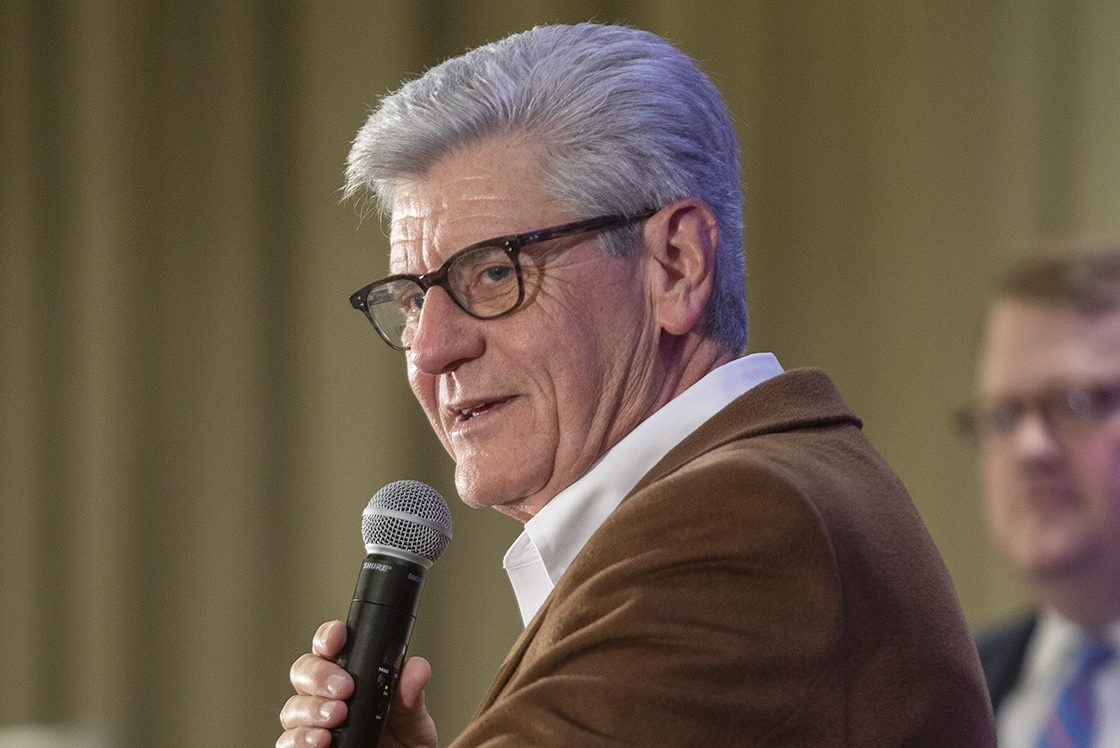
Through his counsel, Bryant has denied the allegation to Mississippi Today. At the point this payment was made, Favre had not yet cut the radio ad.
“Favre knew that this was a sham designed to allow MDHS to cover Favre’s commitment to fund construction of the volleyball facility,” MDHS alleges in its amended complaint.
Despite their plans, Favre didn’t use the money for the alleged purpose he received it, according to his spokesperson’s statement.
Also in June of 2018, Favre secured donations for the facility from American Family Insurance Dreams Foundation Inc. and Bryant’s PAC Imagine Mississippi Political Action Committee.
Bryant was still governor when Imagine Mississippi PAC donated $2,500 to the volleyball project in June of 2018. Bryant started the PAC by closing his campaign-finance account and transferring the bulk of the $1.05 million he had left over to the new organization in 2017 shortly after winning his second term. The PAC’s stated goal is to support conservative candidates and officials. It spent about $220,000 in 2017, $216,000 in 2018, $307,000 in 2019 and $23,000 in 2020. It did not file an annual report for 2021 or 2022 or a notice of termination, according to what is available on the Secretary of State’s Office website.
American Family Insurance Dreams Foundation Inc., which donated $100,000 towards the volleyball stadium, is a nonprofit focused on supporting programs in academic achievement, healthy youth development, economic opportunity, such as job training, and community resilience, including food, housing and daycare.
A spokesperson for the foundation told Mississippi Today that Favre played in its golf tournament for several years, drawing large crowds and helping fundraising efforts for its nonprofit partners. “For his participation, we made charitable contributions to a few select organizations of his choice, including the University of Southern Mississippi. Supporting colleges and universities, including programming that impacts students, aligns to the mission of the American Family Insurance Dreams Foundation.”
The spokesperson did not respond to follow up questions about what programming the foundation thought its gift was supporting.
In July of 2018, Singing For Change Charitable Foundation — a charity founded by Pascagoula-native and USM alum Jimmy Buffett with the slogan, “Turning good vibes into good deeds” — gave $33,378 for the facility. Its website says it gives grants to small, grassroots nonprofits across the country that help people “get back on their feet, back into homes, back to work, find meaningful jobs, become better educated, and thrive according to their definition.” One dollar for every concert ticket Buffett sells on tour goes towards his foundation.
“Our contribution on behalf of student wellness at USM was made in good faith to the University’s foundation,” a spokesperson for SFC Charitable Foundation said in a statement to Mississippi Today. “… When any nonprofit goes astray and mismanages funds, it’s a sad day for those of us in the sector but especially distressing and financially stressful for local organizations handling the fallout. As Jimmy’s tour resumes this spring, we will to continue to support people living on the margins across the U.S.”
An anonymous donor also contributed $150,000 towards the volleyball stadium that month, according to the Morrison email, and Favre himself donated $50,000 the next month.
Despite personally receiving $1.1 million from the nonprofit, Favre continued in the following months and years to lobby welfare officials, other government officials and current Gov. Tate Reeves in an attempt to secure more public funds to satisfy his obligation.
But this never happened: “Zero public funds went towards satisfying this voluntary pledge,” the spokesperson for Favre confirmed for the first time to Mississippi Today recently.
It’s unclear how Favre may have used the $1.1 million he received from MCEC, which he has since repaid to the state. When he spoke to his associates about his debt in the project, the number varied from $1.1 million or $1.2 million in March of 2019 to $1.8 million in September of 2019.
By July of 2019, Davis had been ousted for suspected fraud and Favre was becoming worried.
“Nancy has been awesome to me and has paid 4.5 million for a 7 million dollar facility. And she said it was all gonna be taken care of until this morning,” Favre wrote to his business associate, Jake Vanlandingham, founder of a pharmaceutical startup company called Prevacus, on July 16, 2019. This text was first published by Mississippi Today in its investigative series “The Backchannel.”
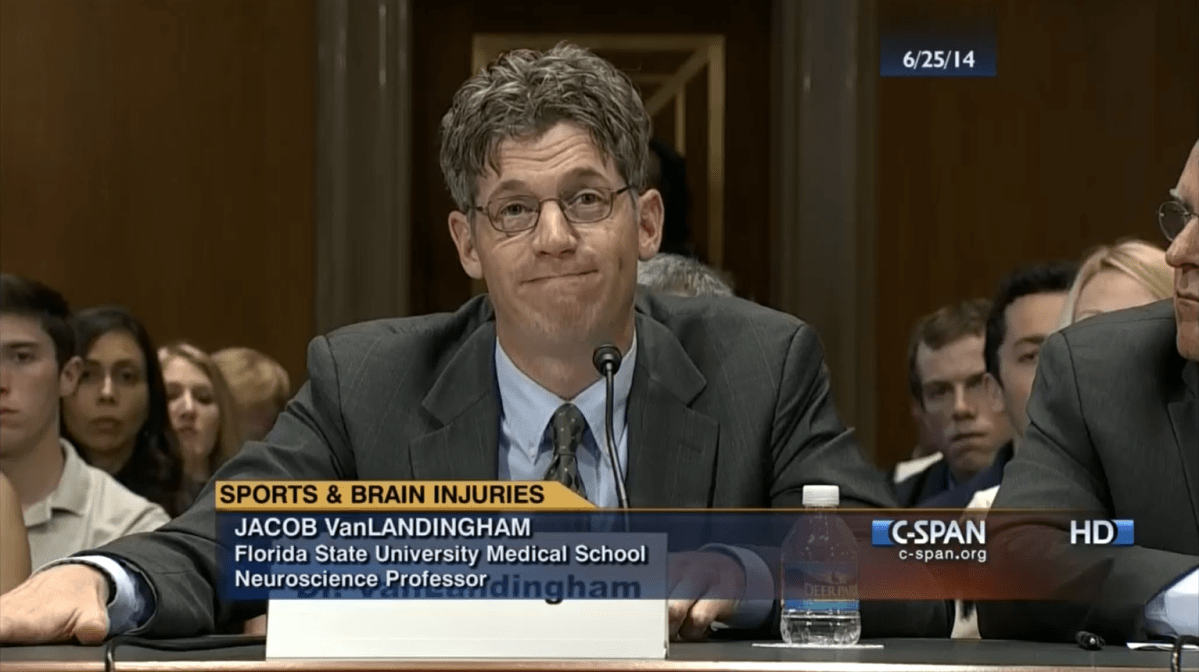
(MDHS also alleges that Favre participated in the funneling of $1.7 million in welfare money to Prevacus, to which New has pleaded guilty criminally, and that Favre is liable. In response, Favre’s attorneys argue, “All Favre is alleged to have done with respect to Prevacus is to have introduced VanLandingham to New … This is insufficient to state a claim that Favre agreed to join a conspiracy … if this conduct was sufficient to join a conspiracy, then MDHS could also add as co-conspirators Southern Miss Athletic Director Jon Gilbert for his role in introducing New to Favre and attending the meeting.”)
“Suddenly she said I don’t think I can do anymore,” Favre wrote to Vanlandingham, referring to New, according to “The Backchannel” texts. “So now I am looking at a big pay out.”
The same month, Steel Dynamics Foundation donated $25,000 towards Favre’s volleyball pledge. Steel Dynamics Foundation is the foundation associated with Steel Dynamics Inc., a Fort Wayne, Indiana-based company that has manufacturing sites in Mississippi and recently received $247 million in tax incentives from the state. The foundation’s website says its goal is to improve the quality of life and local economies in the communities where its employees work.
By September of 2019, Favre’s debt had apparently grown. “I have more shit going on not to mention a very likely 1.8 million note coming due that I thought was covered,” Favre texted Vanlandingham.
That month, Favre secured a meeting with Bryant and the new welfare director, Christopher Freeze, who replaced Davis. They discussed pushing additional grant funds to the volleyball project. After the meeting, Bryant encouraged Favre by text that “We are going to get there. … But we have to follow the law.”
Freeze told Mississippi Today he rejected the proposal and there’s been no evidence that any additional welfare money went to the project after this point.
The next month, Aaron Rodgers – the quarterback who replaced Favre at the Green Bay Packers, prompting a memorable feud in sports pop culture history – donated $10,000 to the facility, according to the Morrison email. Favre had also talked to Vanlandingham in 2019 about asking for Rodgers’ support with the pharmaceutical venture. Rodgers’ agent did not return emails or a call from Mississippi Today.
By early 2020, Favre was desperately trying to come up with the rest of the funding. According to the Morrison email, he then secured $500 from Howard Deneroff, executive producer of Westwood One Sports, an NFL broadcaster. Favre had asked Deneroff to donate in exchange for a sit-down interview on the network. Favre also collected $22,000 from the Jimmy A. Payne Foundation, the foundation of a USM alum and businessman, and $350,000 from Matt Helms, owner of a sports memorabilia store in south Mississippi.
But it wasn’t enough. Favre even attempted to involve the Mississippi Community College Board, incoming Gov. Tate Reeves and the Legislature.
Bryant texted then-USM President Rodney Bennett about Favre’s insistence.
“The bottom line is he personally guaranteed the project, and on his word and handshake we proceeded,” Bennett texted Bryant on Jan. 27, 2020, shortly after the outgoing governor left office. “It’s time for him to pay up – it really is just that simple.”
MDHS uses this text to substantiate its allegation that Favre committed the funds before the welfare payment, since the athletic foundation proceeded with the project by hiring architects to start drafting renderings of the building in July of 2017.
All of this together, MDHS alleges, “support the reasonable inference that Favre personally committed to guarantee the volleyball facility’s construction at the outset of the project.”
Favre’s attorneys push back: “MDHS takes this text message completely out of context—it clearly related to efforts by Favre to raise funds to meet his 2018 written commitment,” Favre’s recent reply states. “MDHS takes a giant and unsupported leap of faith in claiming that the text message related to some different, earlier commitment.”
On the day of the initial arrests in February of 2020, Morrison, the associate athletic director, sent Favre the email describing “the following gifts that have been applied towards your commitment to the Volleyball Facility.”
Asked about the timing of the email, the Favre spokesperson said, “it is purely coincidental.”
The indictment, which was made public that day, had named Prevacus and its affiliate PreSolMD, alleging that the News had embezzled welfare funds from their nonprofit to invest in the companies.
About a week later, Vanlandingham texted Favre, saying he wasn’t sure if one of their potential investors was going to follow through with his contribution “given this MS embezzlement shit.”
Vanlandingham asked the athlete to make another $50,000 donation so PreSolMD could begin developing what it called a “pregame cream” that it promised could prevent concussions.
“…I would but up to my eyeballs in vball debt,” Favre responded.
This article first appeared on Mississippi Today and is republished here under a Creative Commons license.
Mississippi Today
IHL deletes the word ‘diversity’ from its policies

The governing board of Mississippi’s public universities voted Thursday to delete the word “diversity” from several policies, including a requirement that the board evaluate university presidents on campus diversity outcomes.
Though the Legislature has not passed a bill targeting diversity, equity and inclusion initiatives in higher education, the Institutions of Higher Learning Board of Trustees approved the changes “in order to ensure continued compliance with state and federal law,” according to the board book.
The move comes on the heels of the re-election of former President Donald Trump and after several universities in Mississippi have renamed their diversity offices. Earlier this year, the IHL board approved changes to the University of Southern Mississippi’s mission and vision statements that removed the words “diverse” and “inclusiveness.”
In an email, John Sewell, IHL’s communications director, did not respond to several questions about the policy changes but wrote that the board’s goal was to “reinforce our commitment to ensuring students have access to the best education possible, supported by world-class faculty and staff.”
“The end goal is to support all students, and to make sure they graduate fully prepared to enter the workforce, hopefully in Mississippi,” Sewell added.
On Thursday, trustees approved the changes without discussion after a first reading by Harold Pizzetta, the associate commissioner for legal affairs and risk management. But Sewell wrote in an email that the board discussed the policy amendments in open session two months ago during its retreat in Meridian, more than an hour away from the board’s normal meeting location in Jackson.
IHL often uses these retreats, which unlike its regular board meetings aren’t livestreamed and are rarely attended by members of the public outside of the occasional reporter, to discuss potentially controversial policy changes.
Last year, the board had a spirited discussion about a policy change that would have increased its oversight of off-campus programs during its retreat at the White House Hotel in Biloxi. In 2022, during a retreat that also took place in Meridian, trustees discussed changing the board’s tenure policies. At both retreats, a Mississippi Today reporter was the only member of the public to witness the discussions.
The changes to IHL’s diversity policy echo a shift, particularly at colleges and universities in conservative states, from concepts like diversity in favor of “access” and “opportunity.” In higher education, the term “diversity, equity and inclusion” has traditionally referred to a range of efforts to comply with civil rights laws and foster a sense of on-campus belonging among minority populations.
But in recent years, conservative politicians have contended that DEI programs are wasteful spending and racist. A bill to ban state funding for DEI in Mississippi died earlier this year, but at least 10 other states have passed laws seeking to end or restrict such initiatives at state agencies, including publicly funded universities, according to ABC News.
In Mississippi, the word “diversity” first appeared in IHL’s policies in 1998. The diversity statement was adopted in 2005 and amended in 2013.
The board’s vote on Thursday turned the diversity statement, which was deleted in its entirety, into a “statement on higher education access and success” according to the board book.
“One of the strengths of Mississippi is the diversity of its people,” the diversity statement read. “This diversity enriches higher education and contributes to the capacity that our students develop for living in a multicultural and interdependent world.”
Significantly, the diversity statement required the IHL board to evaluate the university presidents and the higher learning commissioner on diversity outcomes.
The statement also included system-wide goals — some of which it is unclear if the board has achieved — to increase the enrollment and graduation rates of minority students, employ more underrepresented faculty, staff and administrators, and increase the use of minority-owned contractors and vendors.
Sewell did not respond to questions about if IHL has met those goals or if the board will continue to evaluate presidents on diversity outcomes.
In the new policy, those requirements were replaced with two paragraphs about the importance of respectful dialogue on campus and access to higher education for all Mississippians.
“We encourage all members of the academic community to engage in respectful, meaningful discourse with the aim of promoting critical thinking in the pursuit of knowledge, a deeper understanding of the human condition, and the development of character,” the new policy reads. “All students should be supported in their educational journey through programming and services designed to have a positive effect on their individual academic performance, retention, and graduation.”
Also excised was a policy that listed common characteristics of universities in Mississippi, including “a commitment to ethnic and gender diversity,” among others. Another policy on institutional scholarships was also edited to remove a clause that required such programs to “promote diversity.”
“IHL is committed to higher education access and success among all populations to assist the state of Mississippi in meeting its enrollment and degree completion goals, as well as building a highly-skilled workforce,” the institutional scholarship policy now reads.
The board also approved a change that requires the universities to review their institutional mission statements on an annual basis.
A policy on “planning principles” will continue to include the word “diverse,” and a policy that states the presidential search advisory committees will “be representative in terms of diversity” was left unchanged.
This article first appeared on Mississippi Today and is republished here under a Creative Commons license.![]()
Mississippi Today
Closed St. Dominic’s mental health beds to reopen in December under new management

The shuttered St. Dominic’s mental health unit will reopen under the management of a for-profit, Texas-based company next month.
Oceans Behavioral Hospital Jackson, a 77-bed facility, will provide inpatient behavioral health services to adults and seniors and add intensive outpatient treatment services next year.
“Jackson continuously ranks as one of the cities for our company that shows one of the greatest needs in terms of behavioral health,” Oceans Healthcare CEO Stuart Archer told Mississippi Today at a ribbon cutting ceremony at its location on St. Dominic’s campus Thursday. “…There’s been an outcry for high quality care.”
St. Dominic’s 83-bed mental health unit closed suddenly in June 2023, citing “substantial financial challenges.”
Merit Health Central, which operates a 71-bed psychiatric health hospital unit in Jackson, sued Oceans in March, arguing that the new hospital violated the law by using a workaround to avoid a State Health Department requirement that the hospital spend at least 17% of its gross patient revenue on indigent and charity care.
Without a required threshold for this care, Merit Health Central will shoulder the burden of treating more non-paying patients, the hospital in South Jackson argued.
The suit, which also names St. Dominic’s Hospital and the Mississippi Department of Health as defendants, awaits a ruling from Hinds County Chancery Court Judge Tametrice Hodges-Linzey next year.
The complaint does not bar Oceans from moving forward with its plans to reopen, said Archer.

Oceans operates two other mental health facilities in Mississippi and over 30 other locations in Louisiana, Oklahoma and Texas.
“Oceans is very important to the Coast, to Tupelo, and it’s important right here in this building. It’s part of the state of Mississippi’s response to making sure people receive adequate mental health care in Mississippi,” said Lt. Governor Delbert Hosemann at the Nov. 21 ribbon cutting.
Some community leaders have been critical of the facility.
“Oceans plans to duplicate existing services available to insured patients while ignoring the underserved and indigent population in need,” wrote Hinds County Sheriff Tyree Jones in an Oct. 1 letter provided to Mississippi Today by Merit Health.
Massachusetts-based Webster Equity Partners, a private-equity firm with a number of investments in health care, bought Oceans in 2022. St. Dominic’s is owned by Louisiana-based Catholic nonprofit Franciscan Missionaries of Our Lady Health System.
Oceans first filed a “certificate of need” application to reopen the St. Dominic’s mental health unit in October 2023.
Mississippi’s certificate of need law requires medical facilities to receive approval from the state before opening a new health care center to demonstrate there is a need for its services.
The Department of Health approved the application under the condition that the hospital spend at least 17% of its patient revenue on free or low-cost medical care for low-income individuals – far more than the two percent it proposed.

Oceans projected in its application that the hospital’s profit would equal $2.6 million in its third year, and it would spend $341,103 on charity care.
Merit Health contested the conditional approval, arguing that because its mental health unit provides 22% charity care, Oceans providing less would have a “significant adverse effect” on Merit by diverting more patients without insurance or unable to pay for care to its beds.
Oceans and St. Dominic’s also opposed the state’s charity care condition, arguing that 17% was an unreasonable figure.
But before a public hearing could be held on the matter, Oceans and St. Dominic’s filed for a “change of ownership,” bypassing the certificate of need process entirely. The state approved the application 11 days later.
Merit Health Central then sued Oceans, St. Dominic and the State Department of Health, seeking to nullify the change of ownership.
“The (change of ownership) filing and DOH approval … are nothing more than an ‘end run’ around CON law,” wrote Merit Health in the complaint.
Oceans, St. Dominic’s and the Mississippi Department of Health have filed motions to dismiss the case.
This article first appeared on Mississippi Today and is republished here under a Creative Commons license.![]()
Mississippi Today
How Mississippi’s Supreme Court Runoff Election Could Impact Criminal Cases

Mississippi voters have dealt defeat to one conservative state Supreme Court justice and forced a moderate justice into a Nov. 26 runoff, with the final outcome possibly making the court more open to considering the rights of criminal defendants.
The nine-member court is largely conservative but justices have recently split in high-profile decisions that sharply affected state politics, including a ruling that shut down citizen-led ballot initiatives in Mississippi and allowed some state control over local criminal cases in its majority-Black capital. The court has also rendered rulings that have made the state increasingly unfavorable to defendants appealing their cases.
“The ability of death row inmates in particular, and inmates in general, to access the courts has been recently curtailed significantly,” Matthew Steffey, a professor at Mississippi College School of Law, told The Marshall Project – Jackson and Bolts following the Nov. 5 election.
Justice Dawn H. Beam joined the majority in those decisions, acquiring a reputation of being hostile to appeals by criminal defendants, and she ran for reelection this fall as the Republican Party’s favored candidate. However, she lost in the state’s 2nd District on Nov. 5 to David P. Sullivan, a defense attorney who has worked as a public defender.
Judicial races in Mississippi are nonpartisan and Sullivan has given few explicit signals about his judicial outlook. He has supported at least some criminal justice reforms and would be the third justice with experience as a defense attorney on this court. Some reformers nationwide have pushed for more professional diversity on the bench.
Even if Sullivan turns out to be more centrist or independent than Beam on criminal law, any overall shift in power on the court depends on the outcome of a runoff election next week.
Two-term Justice Jim Kitchens and challenger Jenifer B. Branning will face each other in the Nov. 26 runoff election after neither won more than 50% of the vote on Nov. 5. The runoff will take place across the 22 counties that make up the Supreme Court’s central district, including Hinds County, home to Jackson. Throughout the campaign, the state GOP targeted Kitchens with attacks, while Branning, a Republican state senator with a conservative voting record, is endorsed by the party.
Kitchens is one of two reliably moderate-to-liberal high court justices. Justices from among an additional group of four sometimes veer away from the majority, as well, but can be more unpredictable, and this group does not vote as a bloc.
Quinn Yeargain, a Michigan State University law professor who closely watches state courts, recently analyzed the court’s voting patterns and found Beam was consistently more conservative than Kitchens in recent cases. Yeargain told The Marshall Project – Jackson and Bolts that conservative and liberal voters often have few signals about how to select a candidate in judicial races. “It’s very hard to label the justices,” they said.
Sullivan — whose father was a Mississippi Supreme Court justice from 1984 to 2000 — called himself a “conservative” throughout his campaign. But he has also touted the value of judicial independence and criticized Beam for campaigning on her endorsement by the state Republican Party.
“I think that rubbed a lot of people the wrong way,” Sullivan told the Sun Herald newspaper, speaking of Beam’s use of the endorsement. “Judicial races are nonpartisan for a reason. A judge’s impartiality could be called into question.”
Sullivan has broad legal experience, but much of his career has focused on private criminal defense while also doing some public defense work. He told The Marshall Project – Jackson and Mississippi Today that he supported a new administrative rule handed down in 2023 by the state Supreme Court to require continuous legal representation for poor criminal defendants from the beginning of their cases. An investigation by The Marshall Project, ProPublica and the Northeast Mississippi Daily Journal last year found, however, that many courts were unready at the time to implement the new representation rules.
During the campaign, Sullivan told The Marshall Project – Jackson and Mississippi Today that more work is needed to improve public defense.
Kitchens has also advocated for public defense reforms during his two terms on the court. He told a committee of legislators last year that the “playing field is far from level” between prosecutors and poor defendants.
On other criminal justice issues, he has sometimes dissented from opinions upholding death sentences. His decisions have scrutinized prosecutorial conduct and inadequate legal representation.
Branning, the Republican senator, has a voting record on criminal justice issues that suggests a harsher approach toward criminal defendants. She has supported higher mandatory minimum sentences and reclassifying misdemeanors as felonies, has opposed expansion of parole and was among only a few lawmakers who voted against legalizing medical marijuana.
She also supported increasing the jurisdiction of a controversial, state-run police force inside the majority-Black city of Jackson as well as increasing state control over many felony cases in Jackson. The Supreme Court unanimously curtailed much state power over these felony cases, but a majority left some control intact, with Kitchens and another judge dissenting.
Branning did not respond to questions from The Marshall Project – Jackson and Mississippi Today during the Nov. 5 campaign about her possible judicial outlook.
Kitchens was a prosecutor and then in private practice before joining the bench. Branning is a practicing attorney who typically handles civil cases.
The winner of the Nov. 26 runoff will join Sullivan on a court that in recent years has been restricting the ability of people who say the legal system has wronged them to seek relief, legal experts told The Marshall Project – Jackson and Bolts this month.
Krissy Nobile, director of the state’s Office of Capital Post-Conviction Counsel, said it’s become “increasingly more difficult to correct a wrongful conviction.” Her office provides legal counsel for indigent people on death row.
She said a number of recent cases showed the barriers the high court has erected for criminal defendants appealing their convictions, and demonstrated indifference to civil rights violations. Kitchens disagreed with the majority, in full or in part, in all but one of the appeals, which the court unanimously denied.
In a case earlier this year, the Court ruled to monetarily fine an incarcerated person for filing any future post-conviction relief petitions that lacked merit. Kitchens joined a dissenting opinion condemning the fine. In another, the court denied a man who argued that his lawyers were ineffective and that they did not challenge prosecutorial misconduct or false forensic evidence presented by a medical examiner with a checkered past. The court’s majority denied the motion, and in the process, overturned a precedent that allowed ineffective counsel as an adequate reason to give a case another look in some types of appeals. Kitchens dissented, along with two other justices.
“For decades in Mississippi, the Court held that it would correct errors if there was a violation (of) a person’s fundamental rights,” Nobile said. But she added this has changed considerably. Now, if you land a terrible lawyer who rushes your case, “You are out of luck,” she said, “even if your core constitutional rights have been clearly violated.”
For the court’s majority, Nobile added, “The legal technicalities now trump a person’s constitutional rights.”

The runoff is the nation’s final supreme court race of the year. Thirty-two states held elections for their high courts earlier this year, resulting in a muddled picture, with liberals and conservatives each gaining ground in different places, Bolts reports.
Mississippi’s runoff outcome will heavily depend on turnout and the composition of the electorate. In the Supreme Court’s central district, voters split narrowly between Democrat Kamala Harris and Republican Donald Trump in the presidential election on Nov. 5, but the runoff is just two days before Thanksgiving and will likely see a large dropoff in turnout. Branning received 42% of the vote in the first round, and Kitchens received 36%, with three other candidates making up the rest.
There will also be a runoff the same day in the Gulf Coast area between Amy Lassiter St. Pé and Jennifer Schloegel for an open seat on the state Court of Appeals. The Court of Appeals hears both criminal and civil cases that have been appealed from lower courts. The Mississippi Supreme Court can hear cases directly on appeal or can assign cases to the Court of Appeals.
Observers agreed that against the national legal backdrop, neither a Kitchens victory nor a Branning victory would lead to a seismic change since neither outcome would flip the court’s conservative lean. Still, a modest shift could impact some of the most controversial cases, such as a rare 5-4 decision that upheld the death sentence in Willie Manning’s case.
A Kitchens win, coupled with Sullivan’s upset earlier this month, would deal the Republican Party rare setbacks in a state where it has been dominant and could put moderate forces in a position to grow their numbers further in future elections.
“You might end up with a normal conservative court,” law professor Yeargain said, “instead of one of the most conservative courts in the country.”
This article first appeared on Mississippi Today and is republished here under a Creative Commons license.![]()
-

 Our Mississippi Home7 days ago
Our Mississippi Home7 days agoCreate Art from Molten Metal: Southern Miss Sculpture to Host Annual Interactive Iron Pour
-

 Local News6 days ago
Local News6 days agoCelebrate the holidays in Ocean Springs with free, festive activities for the family
-

 News from the South - Georgia News Feed6 days ago
News from the South - Georgia News Feed6 days ago'Hunting for females' | First day of trial in Laken Riley murder reveals evidence not seen yet
-

 News from the South - Alabama News Feed7 days ago
News from the South - Alabama News Feed7 days agoFirst woman installed as commanding officer of NAS Pensacola
-

 Kaiser Health News4 days ago
Kaiser Health News4 days agoA Closely Watched Trial Over Idaho’s Near-Total Abortion Ban Continues Tuesday
-

 Mississippi Today6 days ago
Mississippi Today6 days agoOn this day in 1972
-

 News from the South - Alabama News Feed2 days ago
News from the South - Alabama News Feed2 days agoTrial underway for Sheila Agee, the mother accused in deadly Home Depot shooting
-

 News from the South - Alabama News Feed2 days ago
News from the South - Alabama News Feed2 days agoAlabama's weather forecast is getting colder, and a widespread frost and freeze is likely by the …


























